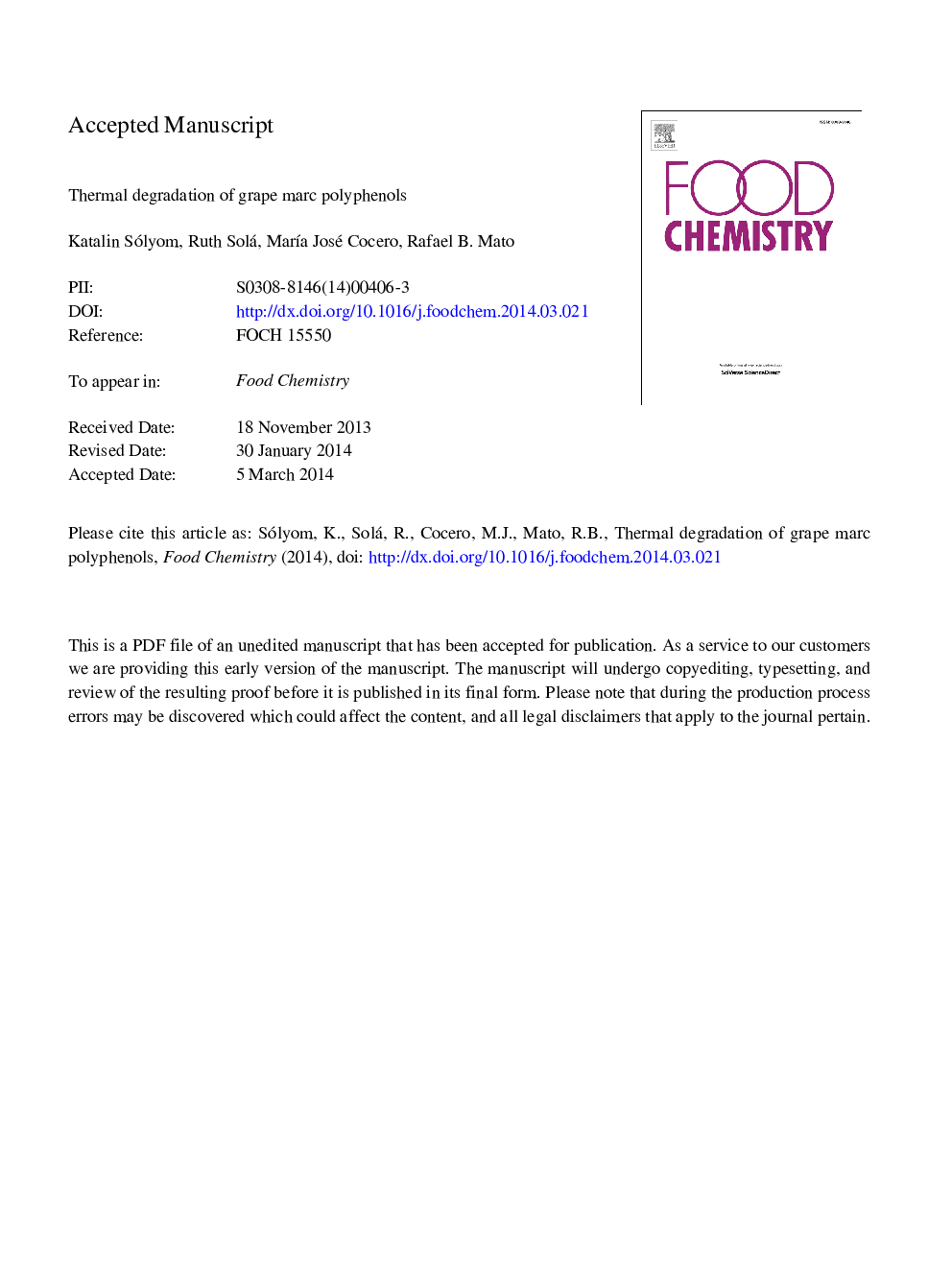| Article ID | Journal | Published Year | Pages | File Type |
|---|---|---|---|---|
| 7597711 | Food Chemistry | 2014 | 31 Pages |
Abstract
Bioactive compounds of wine making by-products are of interest in food, cosmetics and pharmaceutical industries. Extraction of antioxidants under mild conditions is time-consuming, giving ground to the development of intensification processes where the operation at high temperature may deteriorate extract quality. This study examined thermal degradation of grape marc and its filtered extract (80, 100 and 150 °C). The decrease in anthocyanin content was modelled under non-isothermal conditions by first order kinetics, using the Arrhenius equation. Simulated degradation under isothermal heating showed that the grape marc is more sensitive by one order of magnitude to heat than the filtered extract. This tendency was also confirmed by analyses of the total phenolic content and antioxidant activity. It is suggested that an optimal combination of temperature, treatment time and also raw material environment could be found in process intensification.
Related Topics
Physical Sciences and Engineering
Chemistry
Analytical Chemistry
Authors
Katalin Sólyom, Ruth Solá, MarÃa José Cocero, Rafael B. Mato,
